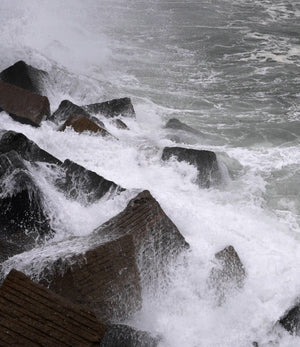 Named one of Food and Wine’s Best New Chefs 2020, Eunjo “Jo” Park serves as the Executive Chef of Kawi in NYC, one of the latest Momofuku restaurants founded by David Chang.Park’s family moved from Seoul, South Korea to Philadelphia when she was 12 years old, and after studying at the Culinary Institute of America, she built a reputation working in distinguished French kitchens like Per Se and Daniel in New York and Le Bec Fin in Philadelphia. Park joined the Momofuku family in 2013 when she worked at Ko for a handful of years before returning to South Korea to explore the culinary heritage of Korean food. Time spent cooking at Gaon, a restaurant awarded three Michelin stars, and staging under the tutelage of Monk Chef Jeong Kwan at Baekyangsa Temple (Chunjinam Hermitage), inspired Park’s unique take on Korean-American cuisine - a perspective she melds with her fine dining background in her work as Executive Chef at Momofuku Kawi. Recreate Chef Eunjo's recipes with her favorite Regalis ingredients.
|
-
-
-
-
- Mei Lin
- Victoria Blamey
- Roze Traore
- Alex Stupak
- Melissa Rodriguez
- Dayana Joseph
- Ignacio Mattos
- Nyesha Arrington
- Misti Norris
- Ludo Lefebvre
- Michael and Bryan Voltaggio
- Junghyun Park
- Eunjo Park
- Sean Brock
- Nina Compton
- Mia Khalifa
- Brandon Jew
- Eric Wareheim
- Ashley Christensen
- Aitor Zabala
- Flynn McGarry
- Zac Posen
- Matty Matheson
-
-
- About Us
- Wholesale Customers
- FAQ
- Loyalty Program
- Regalis Shipping Specials
Cart
15% off your first order
use code
REGALISFIFTEEN
at checkout
New Arrivals
Black Truffle Butter 84%
Regalis Microwaveable Black Truffle Popcorn
Roasted Japanese Seaweed Nori Butter
Regalis Wild Ramp Butter
Smoked Baby Sardines with Lemon, 120g
Shop All
Fresh Truffles
Olive Wood Truffle Shaver / Slicer
Tiger Manta Ray Wasabi Grater 下ろし器- (oroshiki)
Italian Summer Black Truffles
Fresh Chilean Black Truffle (Périgord)
Fresh Winter Black Truffles (Périgord)
Shop All
Caviar
Platinum Osetra Caviar
Amber Kaluga Caviar
The Kaluga Caviar Special
The Caviar Special
Regalis Mother of Pearl Caviar Spoons
Shop All
Korean Specialty Products
Kisoondo Strawberry Gochujang Red Chili Paste
Three-Year Fermented Ganjang (Soy Sauce)
Shop All
Rare Vanilla
Madagascar Sambava Planifolia Vanilla Beans, 1oz
Wild Mexican Pompona Vanilla Beans, 1 oz
Shop All
Chef-Curated Recipes
Into the Wild
Mei Lin
Victoria Blamey
Roze Traore
Alex Stupak
Melissa Rodriguez
Dayana Joseph
Ignacio Mattos
Nyesha Arrington
Misti Norris
Ludo Lefebvre
Michael and Bryan Voltaggio
Junghyun Park
Eunjo Park
Sean Brock
Nina Compton
Mia Khalifa
Brandon Jew
Eric Wareheim
Ashley Christensen
Aitor Zabala
Flynn McGarry
Zac Posen
Matty Matheson




